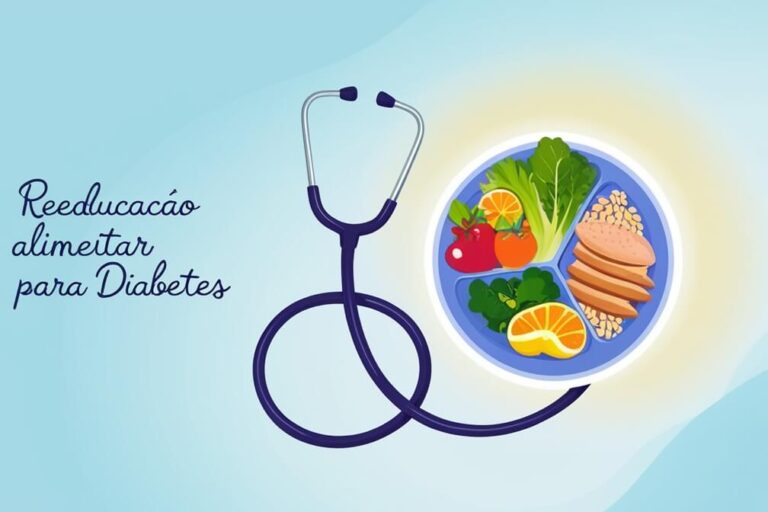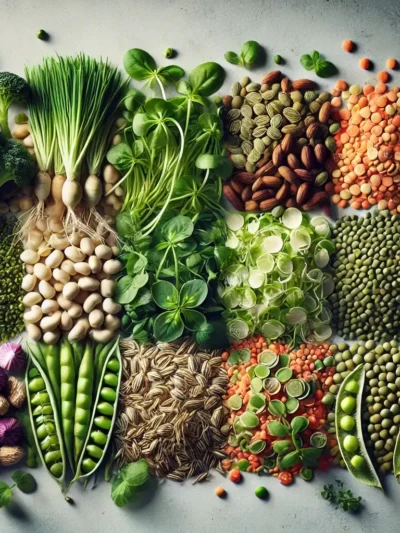THE Nutritional Reeducation for Diabetes is an essential method in controlling the disease, aiming to regulate blood sugar levels.
Through healthy and balanced eating habits, it is possible to prevent serious complications such as heart disease, nerve damage, kidney problems and even blindness.
This complete and detailed guide is intended for beginners, providing important guidelines for effective dietary reeducation in the management of diabetes.
Diabetes, a chronic disease that affects millions of people around the world, is characterized by high blood sugar levels.
Controlling it is crucial to avoid serious complications such as heart disease, nerve damage, kidney problems and even blindness.
In this context, the nutritional reeducation for Diabetes emerges as a fundamental tool for managing diabetes.
Through conscious and balanced food choices, it is possible to keep blood sugar levels within the ideal range and, consequently, prevent the development of complications.
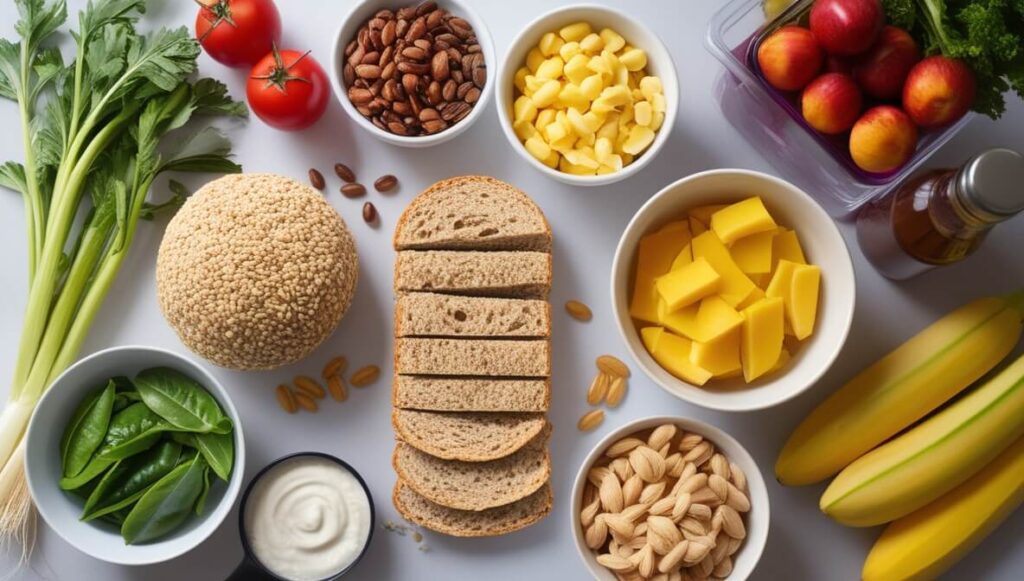
Understanding Diabetes and its Types:
Diabetes manifests itself in different types, the most common being: Brazilian Diabetes Society:
- Type 1: The body does not produce enough insulin. Example: Individuals with type 1 diabetes need to take insulin injections to regulate blood sugar levels.
- Type 2: The body's cells do not respond properly to the insulin produced. Example: People with type 2 diabetes can control the disease with diet, oral medications, or insulin injections, depending on the severity of the disease.
- Gestational: It appears during pregnancy and usually disappears after delivery, but it increases the risk of type 2 diabetes in the future. Example: Women with gestational diabetes should have regular medical follow-up after delivery to monitor their blood sugar levels.
Regardless of the type, the goal of treatment is to keep blood sugar levels within the desired range, usually between 80 and 130 mg/dL before meals and less than 180 mg/dL two hours afterward.
Diet and its Role in Diabetes:
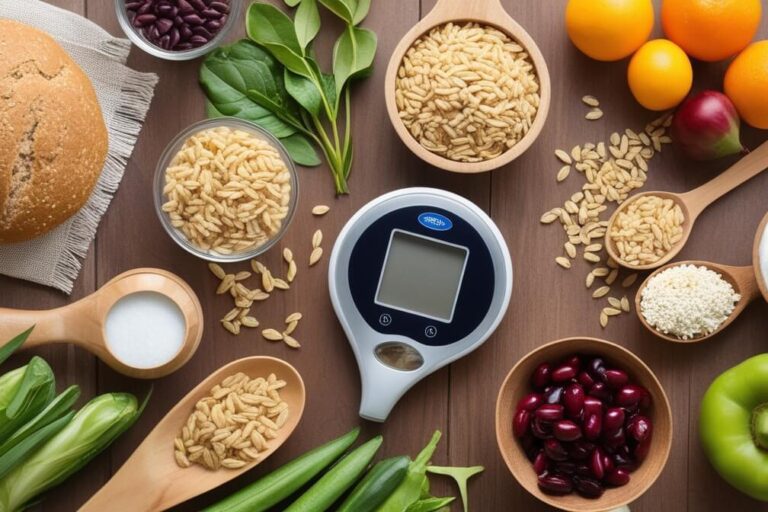
THE food is essential in controlling diabetes, as the foods we eat directly influence blood sugar levels. A balanced diet for diabetes should be rich in:
- Fruits, vegetables and greens: Sources of fiber, vitamins and minerals that help control blood sugar levels. Example: Avocado, banana, broccoli, cabbage, spinach, orange, apple, strawberry, tomato.
- Whole grains: Rich in fiber, they promote satiety and release sugar into the blood gradually. Example: Oats, brown rice, Moroccan couscous, black beans, lentils, quinoa.
- Proteins thin: Present in lean meats, poultry, fish, legumes and eggs, they help with satiety and blood sugar control. Example: Tuna, skinless chicken, chickpeas, lentils, boiled eggs, salmon.
- Healthy fats: Found in olive oil, avocado, nuts and seeds, they contribute to cardiovascular health and satiety. Example: Avocado, extra virgin olive oil, chestnuts, flaxseed, walnuts, chia seeds.
Basic Principles of Diabetes Diet:
- Carbohydrate Control: Opt for complex carbohydrates like whole grains, legumes and vegetables, which release sugar into the blood slowly and gradually. Example: Replace white bread with whole grain bread, white rice with brown rice, white pasta with whole grain pasta.
- Portion Control: Monitor portion sizes to avoid blood sugar spikes. Example: Use portion gauges or measuring cups to control meal sizes.
- Meal Distribution: Eat 3 to 6 smaller meals throughout the day, at regular intervals, to keep your blood sugar stable. Example: Eat a full breakfast, healthy snacks between meals, a balanced lunch and dinner, and, if necessary, a light supper.
- Protein Inclusion and Fats Healthy: Consume lean proteins and healthy fats for satiety and blood sugar control. Example: Include a source of lean protein at every meal and consume healthy fats in moderation.
- Blood Glucose Monitoring: Monitor your blood sugar levels regularly to adjust diet and treatment as needed. Example: Talk to your doctor about the ideal frequency for monitoring your blood sugar.
Benefits of Dietary Reeducation for Diabetes

- Blood Glucose Control: It allows you to keep blood sugar levels within the ideal range, preventing complications. Example: Reducing the risk of hypoglycemia (low sugar levels) and hyperglycemia (high sugar levels).
- Body Weight Control: It helps with losing or maintaining a healthy weight, which is especially important for people with type 2 diabetes. Example: Weight loss may improve insulin sensitivity.
- Improved Cardiovascular Health: Reduces the risk of heart disease and stroke, which are common in people with diabetes. Example: Consuming foods rich in fiber, omega-3 and antioxidants contributes to heart health.
- Increased Energy and Well-Being: Provides essential nutrients to improve quality of life and disposition. Example: One balanced diet provides constant energy and reduces fatigue.
Common Difficulties and Overcoming Strategies:
Dietary reeducation can present challenges, such as:
- Dietary restrictions: Feeling limited in food choices.
- Changes in habits: Adapt to new eating habits.
- Lack of time: Difficulty preparing healthy meals.
To overcome these difficulties, consider:
- Meal Planning: Plan your meals in advance to make healthy choices easier.
- Gradual inclusion of new foods: Introduce new foods gradually to avoid frustration.
- Family involvement: Involve your family in dietary changes to create a supportive environment.
- Seeking professional support: Consult a nutritionist to develop a personalized eating plan.
Dietary re-education is a fundamental part of managing diabetes.
By adopting healthy eating habits, it is possible to control blood sugar levels, reduce the risk of complications and significantly improve quality of life.
Remember that small changes can make a big difference. Always consult a healthcare professional for specific guidance.
Exploring Dietary Reeducation in Diabetes in Detail
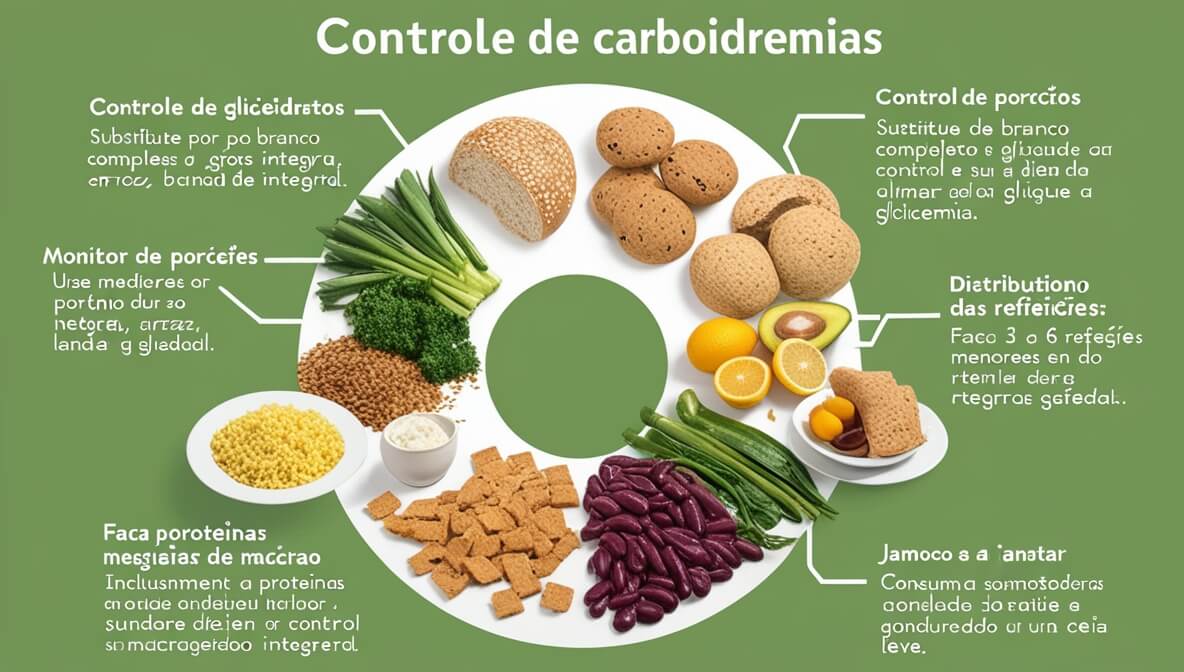
Making your diet a tasty and enjoyable one is key to long-term success. Here are some resources to inspire you:
Healthy Snacks for Everyday Convenience:
- Practical and nutritious options:
- Fruits with oilseeds;
- Natural yogurt with granola;
- boiled eggs;
- Tuna or sardine snacks;
- Mix of nuts and dried fruits;
- Carrot and cucumber sticks with hummus;
- Fruit smoothie with protein powder.
- Tips:
- Prepare options in advance to make them easier to consume throughout the day.
- Keep healthy snacks on hand at home, at work, or in your bag.
- Vary the options to avoid monotony.
Dealing with Social Events Without Guilt:
Celebrating with friends and family is important, even with diabetes. Here are some tips:
- Plan ahead:
- Talk to the host about the food options available.
- Bring a healthy snack to ensure you have something suitable to eat.
- Making smart choices:
- Opt for smaller portions and consume foods with more fiber and protein.
- Limit your intake of sugary and alcoholic beverages.
- Enjoy without guilt:
- Focus on enjoying people's company and the atmosphere of the event.
- Don't deprive yourself of a little sweet treat occasionally, but do so in moderation.
Remember:
- Dietary reeducation is an individualized process. Adapt the tips to your routine and preferences.
- Consult a nutritionist for a personalized eating plan and professional monitoring.
- Support from family and friends is critical to long-term success.
With this information and resources, you are ready to embark on a journey of tasty, enjoyable and effective dietary reeducation in controlling diabetes!
FAQ on Diabetes Control through Diet
| Question | Response |
|---|---|
| What is diabetes? | Diabetes is a chronic disease characterized by high blood sugar levels. This occurs when the body does not produce enough insulin or when cells do not respond properly to insulin. |
| What are the most common types of diabetes? | The most common types of diabetes are Type 1, where the body does not produce insulin; Type 2, where cells do not respond properly to insulin; and gestational diabetes, which occurs during pregnancy. |
| How does diet influence diabetes control? | Diet directly influences blood sugar levels. A balanced diet rich in fiber, lean proteins, and healthy fats can help keep blood sugar levels within the ideal range and prevent complications. |
| What foods are recommended for people with diabetes? | Fruits, vegetables, greens, whole grains, lean proteins, and healthy fats are recommended. Examples include avocado, broccoli, brown rice, lentils, skinless chicken, and olive oil. |
| What are complex carbohydrates and why are they important? | Complex carbohydrates are found in whole grain foods like oats and brown rice. They release sugar into the bloodstream slowly and gradually, helping to keep blood sugar levels stable. |
| How to control food portions? | Use portion gauges or measuring cups to keep track of meal sizes. Eating smaller, more frequent meals throughout the day can also help keep your blood sugar levels stable. |
| Why is it important to include protein and healthy fats? | Lean proteins and healthy fats increase satiety and help control blood sugar levels. Examples include tuna, hard-boiled eggs, avocado, and nuts. |
| What is the role of blood glucose monitoring? | Regular monitoring of blood sugar levels helps adjust diet and treatment as needed, ensuring adequate control of diabetes. |
| What are the benefits of dietary reeducation for diabetes? | Re-educating your diet helps keep your blood sugar levels under control, control your body weight, improve your cardiovascular health and increase your energy and overall well-being. |
| How to deal with difficulties in dietary reeducation? | Planning meals in advance, introducing new foods gradually, involving the family in dietary changes and seeking professional support are strategies for overcoming challenges in dietary reeducation. |
| How to deal with social events without compromising your diet? | Plan ahead, eat smaller portions, choose foods that are high in fiber and protein, and limit your intake of sugary and alcoholic beverages. Enjoy the company and atmosphere of the event without depriving yourself completely, but do so in moderation. |

